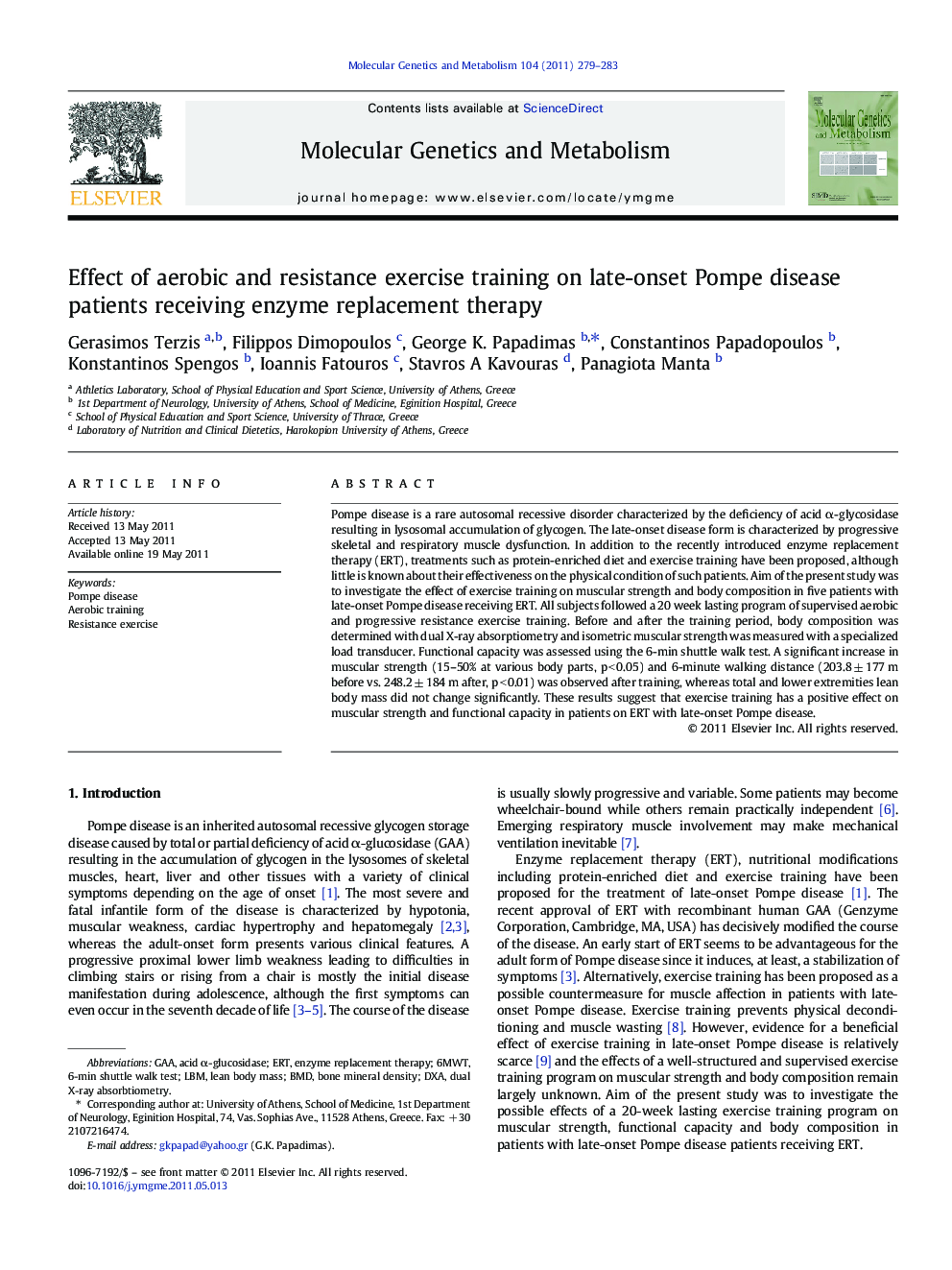| Article ID | Journal | Published Year | Pages | File Type |
|---|---|---|---|---|
| 10833953 | Molecular Genetics and Metabolism | 2011 | 5 Pages |
Abstract
Pompe disease is a rare autosomal recessive disorder characterized by the deficiency of acid α-glycosidase resulting in lysosomal accumulation of glycogen. The late-onset disease form is characterized by progressive skeletal and respiratory muscle dysfunction. In addition to the recently introduced enzyme replacement therapy (ERT), treatments such as protein-enriched diet and exercise training have been proposed, although little is known about their effectiveness on the physical condition of such patients. Aim of the present study was to investigate the effect of exercise training on muscular strength and body composition in five patients with late-onset Pompe disease receiving ERT. All subjects followed a 20 week lasting program of supervised aerobic and progressive resistance exercise training. Before and after the training period, body composition was determined with dual X-ray absorptiometry and isometric muscular strength was measured with a specialized load transducer. Functional capacity was assessed using the 6-min shuttle walk test. A significant increase in muscular strength (15-50% at various body parts, p < 0.05) and 6-minute walking distance (203.8 ± 177 m before vs. 248.2 ± 184 m after, p < 0.01) was observed after training, whereas total and lower extremities lean body mass did not change significantly. These results suggest that exercise training has a positive effect on muscular strength and functional capacity in patients on ERT with late-onset Pompe disease.
Keywords
Related Topics
Life Sciences
Biochemistry, Genetics and Molecular Biology
Biochemistry
Authors
Gerasimos Terzis, Filippos Dimopoulos, George K. Papadimas, Constantinos Papadopoulos, Konstantinos Spengos, Ioannis Fatouros, Stavros A Kavouras, Panagiota Manta,
